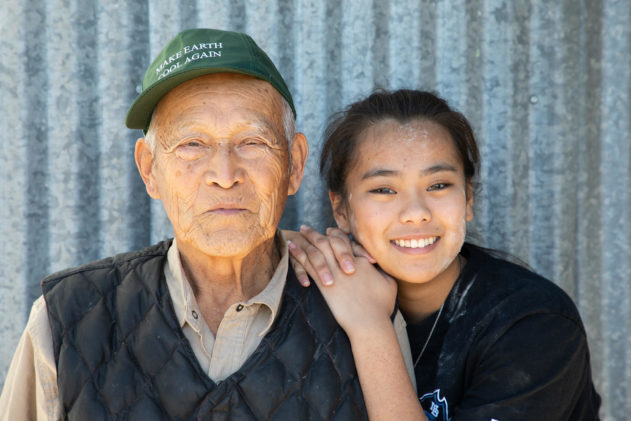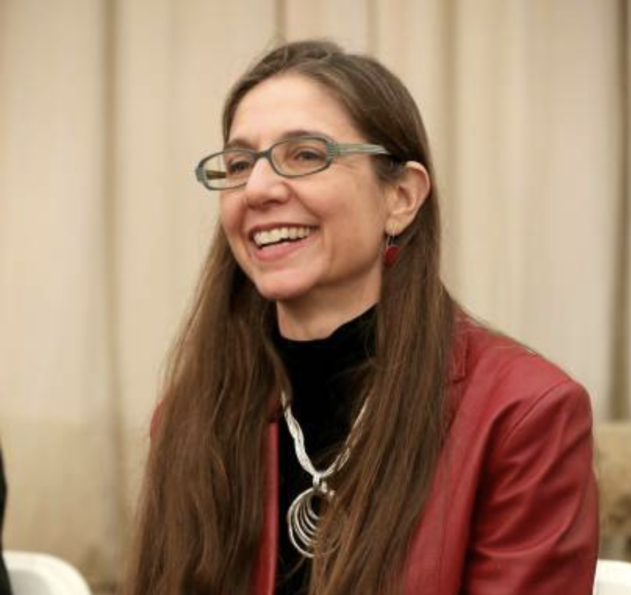Talking with Sky Bergman. Her short “Mochitsuki” screens at SBIFF on Sunday
Sky Bergman is a filmmaker and teacher based in San Luis Obispo, California, a university town known for being the home of Cal Poly (California Polytechnic State University). In 2017 Bergman brought her documentary “Lives Well Lived,” which shared the wisdom of a group of gloriously happy senior citizens, to the Santa Barbara International Film Festival. It’s a wonderful film—which I hasten to even describe as “little”—that sheds light on older people as a way to help us see death as nothing more than the celebratory end of life (in my writeup for the Washington Times, I said that Bergman’s interview subjects, when asked what keeps them going, “frequently [say] that they live for joy, family and purpose, which keeps both spirit and mind young even as bodies age.”)
Thankfully, Bergman is back for SBIFF with her 2020 entrant, the short documentary “Mochitsuki: Celebrating the Japanese New Year,” screening today. It shows Japanese Americans preparing for a new year by making mochi, a traditional rice ball that is often filled with flavorful ice cream.
FESTIVAL NEWS: SBIFF35 will open with the Shelly Love-directed “A bump along the way”
“My brother married a woman who is Japanese. They have two little boys together and are raising them in Tokyo,” Bergman told me via email, adding that it was one of the subjects of her earlier film, Susy Eto Bauman, who taught Bergman about the Japanese annual rite. “I was lucky enough to be invited to chronicle their celebration.
“The day I was filming ‘Mochitsuki’ here in California, my brother’s family was making mochi in Japan.”
“Mochitsuki” is only four minutes long, which required the filmmaker to compact quite a bit into a tight structure. Bergman needed to keep it small, saying her goal was to try and “tell the story of how one family brought the Mochi tradition” to Southern California.
That story cannot be told without acknowledging the internment of Japanese Americans during the World War II, when hewing to cultural traditions from the old world seemed both more difficult, and more important, than ever.
Indeed, several of the subjects in “Mochitsuki” experienced internment.
“The trick is to not trivialize it or coat it in sentimentality,” Bergman said.
She acknowledges that much was left on the cutting room floor that could potentially turn into another project, but she took a less-is-more approach to “Mochitsuki” and believes the short running time nonetheless gets across an important message. “It’s about determining what’s absolutely necessary to the story and hopefully being able to leave room around the edges. I always try to include at least one poignant moment and a little bit of humor.”
That sense of poignancy started with Bergman’s own grandmother, who lived with her for several summers, with the two spending hours cooking and talking. It was this that gave her the idea for “Lives Well Lived,” with the grandmother becoming one of its subjects, as well as the notion that food is a bonding experience. This, too, naturally informs “Mochitsuki.”
“Since working on ‘Lives Well Lived,’ my passion has been showing intergenerational connections,” Bergman said. “What better way to do that than showing a family passing traditions on through food?”
Independent filmmakers might not have the budgets or assets available to A-listers—or even C-listers, for that matter—but the upside, as Bergman believes, is a sense of artistic freedom to choose the projects she wants.
And, more often than not, the next idea doesn’t need to be sought; it’s already there.
“What’s happening in your everyday life that you care about, that helps you learn, that’s making you grow?” she said. “The thing you should be doing, the thing you’re really passionate about, is usually right in front of you.”
“Mochitsuki: Celebrating the Japanese New Year” premieres at SBIFF today. Screening at the Arlington Theatre at 5 p.m. Pacific (visit the Santa Barbara International Film Festival)
news via inbox
Nulla turp dis cursus. Integer liberos euismod pretium faucibua





